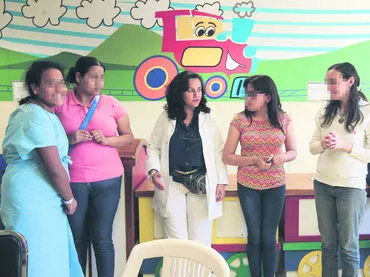Guadalajara, Jalisco - Mariana, Romina and Joshua have something in common.The three are warriors and every day they face type I diabetes and live with it.
Joshua is six years old and has the same simplicity as he would use to talk about his favorite cartoon, that the sugar is measured every morning with a piquetite that is done with a lancet in his small finger.
When he was just two years old, he was diagnosed, says Nohemí Galindo, his mother, who sees a brave son.
Joshua knows what time and how to apply insulin;He knows his body better than anyone and how he reacts;He tells him while he presumes a smile with the absence of milk teeth that already left.
Children already see the condition as normal in their life, something to wake up and sleep.
Romina, four years old and one and a half with diabetes, knows for example that if he goes to a childrenHis mother, Marcela Zambrano says.
The diagnosis of a disease will never be news that is taken to the first with peace of mind.Children do not remember that day, but their parents do, that is why the integral approach that includes the medical, nutritional, information and psychological theme must be for the whole family.
The clinical psychologist assigned to the Pediatrics service of the General Hospital of the West (HGO), Naemí Gauna Navarro, ensures that the essence of diabetes treatment is education.
That is why the Jandi support group (young people, adolescents and children with diabetes) was formed in the hospital for some years, in which you learn from suffering through games, talks with specialists and exchange of experiences between minors withType I and II diabetes and their families.
Mariana is another of the group members, a beautiful 16 -year -old girl with a lifetime ahead, and a maturity that surprises anyone.
She was diagnosed with type I diabetes 14 years ago, after her mother, Hilda Llamas Moreno observed that she drink more water and urinated more than normal, thinned without cause and became a girl who got irritated for everything.
Mariana says that people who live with diabetes are people who wake up with that condition every day and follow her life, with some complications, but without being considered sick.
A child who becomes diagnosed with diabetes II has as a primary problem obesity.
In the Jandi group there are 48 active people attending monthly meetings;The smallest is four years old and the older 23. It has the support of the Center for Research and Education in Diabetes and Cardio-Metabolic Diseases A.C., as well as other organizations such as the Esperanza for Children with Diabetes Foundation.


